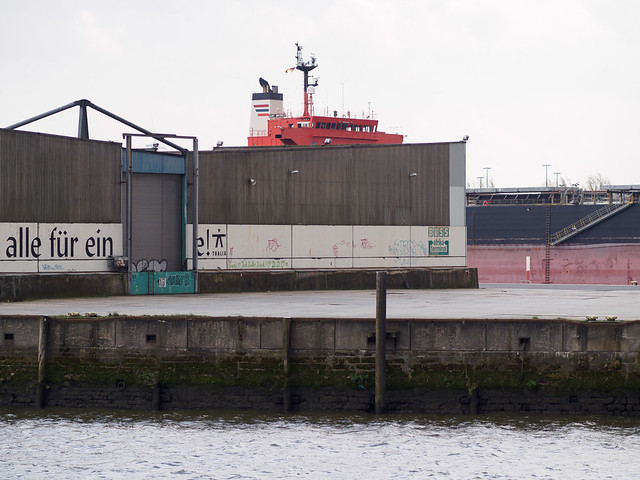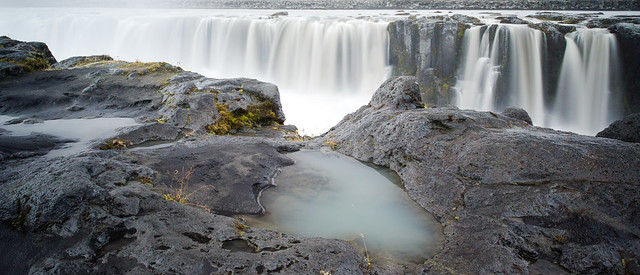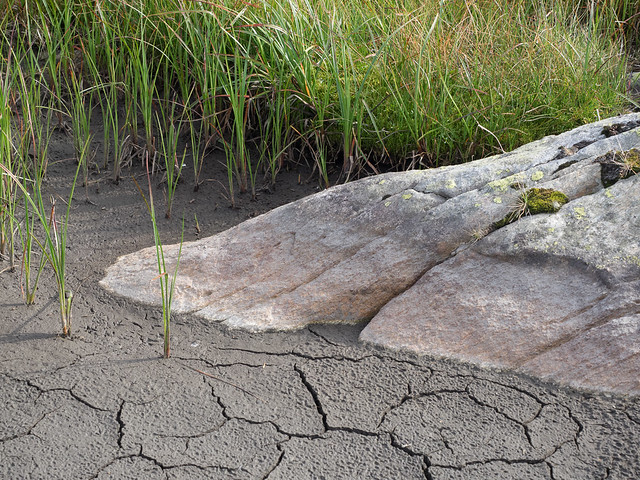(I don’t need no) education ?
or maybe I do
in Post-processing , Wednesday, September 14, 2016
I've been quite prolific this year in photo-education consumerism. I've been fortunate to be able to participate in workshops with, and receive direct advice from, in Ragnar Axelsson (in Hamburg), Daniel Bergmann and David Ward (in Iceland), and Rafael Rojas (in Switzerland). All four are exceptional photographers, and really nice people, and all four have taken the time to give me feedback.
They've also shared with me techniques for post-processing files from camera in order to turn them into something meaningful. This part I find the most interesting, because it's an area in which if I'm honest I'm totally adrift. A lot of this education just goes straight into one ear and out of the other, but enough sticks around for me to get a feeling that some of it is totally contradictory. Two acclaimed, successful landscape photographers express pretty much exactly the same objectives, but give pretty much diametrically opposed ways to reach them. I'm not talking about "there's a million ways to do the same thing in Photoshop", but rather something like one person advocating increasing detail, and the other decreasing it, to achieve the same look. Which rather makes my brain explode.
I'm not sure if it's a result of this, or some basic lack of vision, or something else, but quite often when I'm reviewing recently imported images in Lightroom, if I'm honest I can't actually see anything I should change. They look fine to me. One of the above-mentioned experts may well take a photo of mine and apply layer upon layer of intricate changes, which, probably, improve the photo, and certainly make it look different. But then when I'm back home, sitting in front of the same photo, I don't even have a clue where to start. Should I take the David Ward approach, or the Rafael Rojas path ? Should I first consider framing, and cropping, as both Ragnar and Daniel appear to do? Should I immediately consider monochrome, like Rafael and Ragnar would propose, or should I flip it upside down to check the balance in the composition, as David does ?
Or should I just sit there staring at it for a bit, and then wander off to the web in search of new software or cameras to buy ?
After (large number) of years and (much larger number) of money spent, I should have a better idea, but I haven't. I had been drifting towards a sort of aesthetic borrowed from the film using, portrait/travelogue loose community, larger revolving around the look of Kodak Porta 400, and applying that to my vaguely defined landscape/architecture/travel genre. And before that, I had gradually evolved a process of enhancing images by manipulating texture using progressive, graduated micro-contrast ("clarity", or "detail"), which was quite natural to do in Apple Aperture (less so in Lightroom). But then, I've learned, recently, that touching the Clarity slider, at least to push in a positive direction, is A Bad Idea, and Contrast is my friend. Except that I learned 2 months ago that a giving Clarity a hefty upwards shove in sky areas can be very rewarding, and keep your hands off Contrast.
Of course, I probably got most of that wrong anyway.
So now what ? I basically haven't got a clue. Then again, I'm no worse off than when I started, and it was all quite good fun. Perhaps the style and methods I'd evolved myself were not so bad. Certainly, any four of the above could take any one of my images, and enhance it, arguably make it better. But then it would be theirs, not mine. It's a comforting though to fall back on, except of course when I'm back sitting in front oaf a recently shot photo, and I still have no idea what to do with it.
They've also shared with me techniques for post-processing files from camera in order to turn them into something meaningful. This part I find the most interesting, because it's an area in which if I'm honest I'm totally adrift. A lot of this education just goes straight into one ear and out of the other, but enough sticks around for me to get a feeling that some of it is totally contradictory. Two acclaimed, successful landscape photographers express pretty much exactly the same objectives, but give pretty much diametrically opposed ways to reach them. I'm not talking about "there's a million ways to do the same thing in Photoshop", but rather something like one person advocating increasing detail, and the other decreasing it, to achieve the same look. Which rather makes my brain explode.
Hamburg. Probably should be in monochrome and cropped a bit
I'm not sure if it's a result of this, or some basic lack of vision, or something else, but quite often when I'm reviewing recently imported images in Lightroom, if I'm honest I can't actually see anything I should change. They look fine to me. One of the above-mentioned experts may well take a photo of mine and apply layer upon layer of intricate changes, which, probably, improve the photo, and certainly make it look different. But then when I'm back home, sitting in front of the same photo, I don't even have a clue where to start. Should I take the David Ward approach, or the Rafael Rojas path ? Should I first consider framing, and cropping, as both Ragnar and Daniel appear to do? Should I immediately consider monochrome, like Rafael and Ragnar would propose, or should I flip it upside down to check the balance in the composition, as David does ?
Or should I just sit there staring at it for a bit, and then wander off to the web in search of new software or cameras to buy ?
Iceland. Um. Looks better upside down. And, er, the white balance ?
After (large number) of years and (much larger number) of money spent, I should have a better idea, but I haven't. I had been drifting towards a sort of aesthetic borrowed from the film using, portrait/travelogue loose community, larger revolving around the look of Kodak Porta 400, and applying that to my vaguely defined landscape/architecture/travel genre. And before that, I had gradually evolved a process of enhancing images by manipulating texture using progressive, graduated micro-contrast ("clarity", or "detail"), which was quite natural to do in Apple Aperture (less so in Lightroom). But then, I've learned, recently, that touching the Clarity slider, at least to push in a positive direction, is A Bad Idea, and Contrast is my friend. Except that I learned 2 months ago that a giving Clarity a hefty upwards shove in sky areas can be very rewarding, and keep your hands off Contrast.
Of course, I probably got most of that wrong anyway.
Well, I could spend hours on this if only I knew where to start!
So now what ? I basically haven't got a clue. Then again, I'm no worse off than when I started, and it was all quite good fun. Perhaps the style and methods I'd evolved myself were not so bad. Certainly, any four of the above could take any one of my images, and enhance it, arguably make it better. But then it would be theirs, not mine. It's a comforting though to fall back on, except of course when I'm back sitting in front oaf a recently shot photo, and I still have no idea what to do with it.




2 comments
David Millington October 01, 2016 - 10:47What ARE you worrying about?
I came across your site courtesy of Andrew Molitor and WOW!
Do NOT listen too closely to the preachings of another in a workshop!
Good constructive critcism is hard to come by in this modern age, but if you reflect on your panoramas, take the 'eye' from them and move forward digitally, you have it made!
Your landscapes I like very much; I'm a self-taught photographer who refuses to attend workshops, because my artistic wife is my sharpest critic and why should my photographs reflect the style of X, Y or Z??
I have followed one self-styled master, to my regret, who's outpourings leave me cold, as the images he carfeully and technically crafts are devoid of ANY worthwhile emotion.
Now, I leave them all behind, as reminders of how I DON'T want my images to look.
Maybe your opening photo is not your best, but who hasn't looked at something there and then, made the image, only to think weeks later "Why did I do that?"
The old maxim of making a print, or putting the image on a digital photoframe/computer screensaver, leaving it for a week to see if it still resonates with you, has strength, is still the best advice I have held on to.
My other advice is to get hold of a copy of the Daybooks of Edward Weston and see how he fared with building his confidence, his strengths, in the face of criticisms that sometimes reflected only the petty jealousies of the critic.
For an armchair critic such as myself, don't change a thing!
If you stay with Molitor, you'll find many like-minded people who swim a little against the tide.
It still can be fun to do so!!
Regards,
David
2 comments
David Mantripp October 02, 2016 - 11:04Thanks for your comments and encouraging words. I guess it really all boils down to the increasing loss of any kind of signal in the floods of noise. Also, of course, in order to get an answer, you first need to know what questions to ask. The other thing is to roll everything right and ask myself, well, am _I_ satisfied with what I'm doing? And honestly, quite often I am.
Thanks for the suggestion about Edward Weston. I haven't read this, sounds interesting, I will do so.
D.